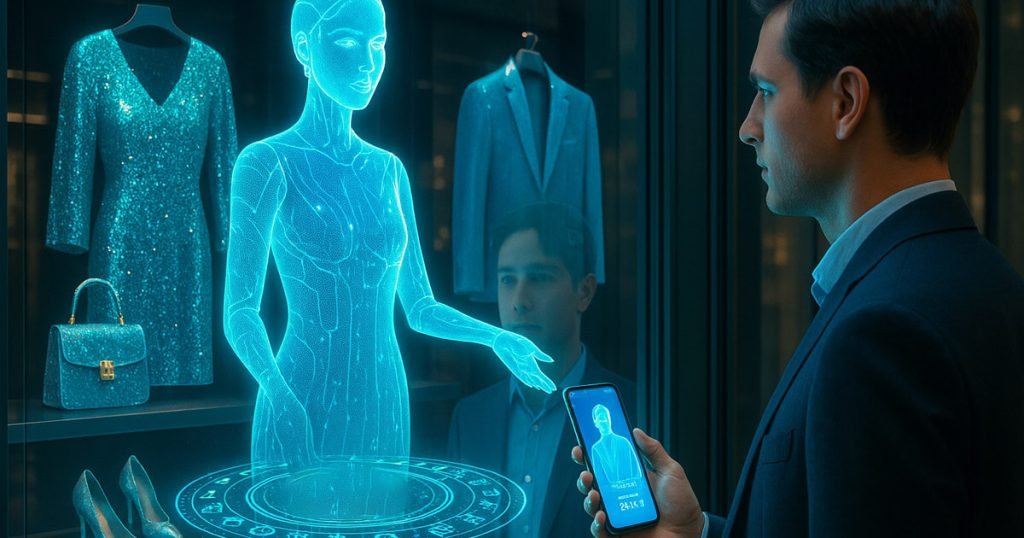The Future of Luxury: How AI Agents and Decentralized Commerce Are Reshaping the Industry
In a world defined by rapid technological advancements, the luxury industry finds itself on the brink of significant transformation. While the sector has gradually embraced digital trends through e-commerce and NFT explorations, the advent of artificial intelligence (AI) agents and decentralized commerce presents an opportunity to fundamentally change how luxury goods are discovered, authenticated, and traded. As we move away from traditional web interactions, AI agents are set to become the new primary interface between consumers and luxury brands, optimizing the purchasing experience in unprecedented ways.
The Shift from Websites to AI Interfaces
The movement away from the traditional website era signals a pivotal shift in customer-brand interactions. Similar to how mobile applications have eclipsed desktop browsing, AI agents will soon dominate how consumers engage with luxury brands. Instead of sifting through numerous websites and app platforms, customers will articulate their desires directly to AI agents. Picture this: you want a specific Chanel evening bag—simply relay your request to your AI assistant. It will search authorized retailers, resale platforms, and brand inventories, verifying authenticity while negotiating prices. This shift towards conversational commerce simplifies and streamlines the luxury shopping experience, presenting a seamless way to acquire high-end items.
Understanding the Role of AI Commerce Agents
AI commerce agents serve as autonomous programs designed to revolutionize the luxury purchasing process. By bypassing traditional platforms, these agents connect directly with brands and sellers to facilitate transactions. Their introduction signifies the potential demise of existing platforms like Farfetch and Net-a-Porter, which are currently integral to luxury goods discovery and transactions. As AI agents cut through the noise of centralized marketplaces, consumers can experience a more efficient and direct purchasing journey. The implications for the luxury sector are significant; the reliance on web-based platforms may diminish as AI agents reshape the connection between consumers and brands.
The Necessity of Decentralization
For AI agents to truly thrive in the luxury commerce space, they require a reliable infrastructure built on trust. Traditional methods of verifying physical products and resolving disputes have reached their limits, making decentralized commerce protocols essential. By leveraging decentralized systems, luxury items can achieve "hard tokenization," where the ownership rights are cryptographically secured, and transactions are automated through smart contracts. In practical terms, when an AI agent purchases a high-value item like a Birkin bag, the decentralized protocol guarantees that the customer receives the authentic product or their money back without the need for centralized intermediaries. This framework cultivates trust and security in luxury transactions, reshaping the purchasing landscape.
Innovative Potential of AI and Decentralized Commerce
The convergence of AI agents and decentralized commerce paves the way for exciting new luxury consumption models. Concepts such as fractional ownership could become mainstream, with AI agents assisting clients in building portfolios of shares in ultra-luxe items—ranging from rare watches to high-end fashion pieces. Moreover, AI agents could facilitate instant authentication, verifying the provenance of vintage finds through decentralized networks. Interestingly, while this technology opens up luxury to a broader audience, it also enhances exclusivity. Aspiring consumers could access entry-level luxury items with the help of AI-driven recommendations, while ultra-high-net-worth individuals could explore new avenues for acquiring and trading rare collectibles via trusted protocols.
Looking Towards the Future of Engagement
As luxury brands prepare for this transformation, a fundamental rethinking of customer engagement is imperative. The focus will need to shift from designing visually appealing websites to making inventory, content, and authentication data readily accessible for AI agents via decentralized protocols. Brands that successfully adapt to this paradigm will reduce platform fees while fostering direct relationships with consumers through AI-mediated interactions. Embracing machine-readable datasets becomes crucial as luxury brands aim to position themselves competitively in this new landscape.
Embracing the Change for a Thriving Future
While the transition to AI agents and decentralized commerce won’t happen overnight, the trajectory is unmistakable. Much like e-commerce reshaped luxury retail in the early 2000s, the integration of AI agents and decentralized systems will redefine the industry for the next decade. Brands that identify this shift as an opportunity rather than a threat will position themselves for success as luxury becomes more accessible yet retains its inherent creativity, craftsmanship, and exclusivity. By welcoming technologies that streamline interactions and enhance authenticity, the luxury sector can embrace a more efficient and engaging future, where customer needs are efficiently met through a digital-first approach.


